PPC stands for pay-per-click advertising — and yep, it’s exactly what it sounds like.
Someone clicks on your ad, you pay a fee and we all go home happy. Easy enough, right?
Not so fast.
PPC advertising may seem simple on the surface, but there’s much more to it than meets the eye. From keyword research and ad copy to bid management and A/B testing, planning and executing an ad campaign is easier said than done.
Luckily, marketers don’t have to do it all on their own. With the right tricks up your sleeve and the right PPC tools, you can optimize your PPC strategy and maximize its return on investment (ROI) in real time. When used effectively, each PPC optimization tool helps you manage tasks like campaign management, allowing you to track your ad accounts more efficiently.
Here, we’re exploring the 10 best PPC tools in 2025 and how they help you manage campaigns from start to finish.

Understanding PPC: Why Does It Matter?
Unlike other marketing tactics, a PPC campaign can generate big results in a short amount of time. As a form of display advertising, it literally puts your content where your audience can’t miss it — search engines, social media, websites and more.
In other words, creating a PPC ad is like buying prime real estate in your target market. Whether it’s published on Google, Amazon or Facebook, your audience is sure to see it as soon as they step through the door.
Better yet, PPC ads are highly effective at driving targeted traffic to your website and generating conversions. According to Google, businesses make an average of $2 in revenue per dollar spent on Google Ads — an ROI of 200%. By focusing on the smart, data-driven platforms Google Ads provides, you can improve performance and ultimately save time on everyday tasks.
Why Use a PPC Management Tool?
With returns as big as that, it’s clear that PPC advertising is well worth the investment. But make no mistake: Planning, creating, designing and implementing advertising campaigns isn’t easy. It’s especially hard if you’re relying on manual processes to manage the mayhem.
Sure, you might be comfortable with Google Sheets. But can you imagine juggling dozens of ad campaigns in a single spreadsheet? It’s only a matter of time before human error becomes a problem.
Fortunately, there are plenty of PPC tools and software that simplify and optimize PPC management. Every solution is different, but generally speaking, they ease your pain in several ways:
- PPC tools automate complicated and time-consuming work, thereby minimizing manual error.
- They streamline ad copy creation, bid management, keyword research and more.
- PPC reporting tools enable real-time ad campaign performance tracking, providing you with key features for better insights.
- Marketers can also use PPC reports to monitor ad spend and budget optimization, allowing them to look at search volume competition while fine-tuning budgets.
Whether you’re using Amazon ads, Microsoft ads (including Bing Ads), Google search, social media or other platforms, it’s important to keep your work organized and on track. PPC automation plus the right optimization tool, coupled with an AdWords Certification, are crucial assets for achieving that goal.
10 of the Best PPC Tools in 2025
There are countless PPC management tools on the market. Some focus on PPC reporting, others specialize in social media, but all aim to strengthen your PPC strategy to its full potential. These solutions often include advanced keyword tools and features, helping you pinpoint relevant search terms that result in higher conversions. Beyond choosing the right tools for campaign optimization, it’s important to factor in considerations like PPC management cost — not just ad spend, but also the fees and pricing models used by agencies or freelance managers. Understanding how PPC providers structure their charges can impact overall budget planning and help you evaluate the real return on your advertising investment.
1. Google Ads
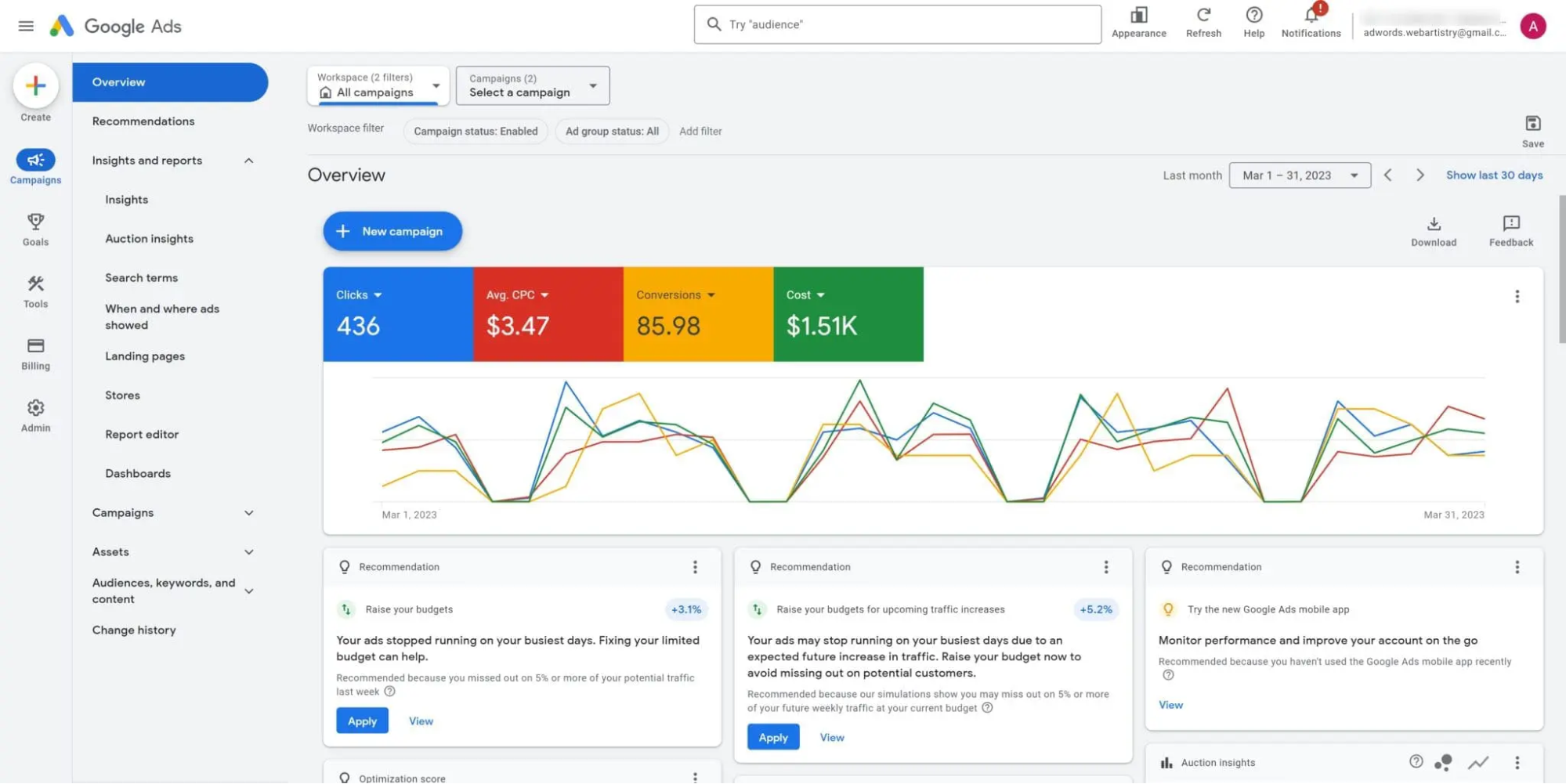
It goes without saying that Google is synonymous with all things search — PPC advertising included. That’s why we couldn’t possibly start this list without discussing Google Ads, the company’s easy-to-use PPC management tool.
Formerly known as Google AdWords, this platform’s primary function is to help you launch campaigns across its network. This includes:
- Google search ads: Text-based ads that appear on search engine results pages (SERPs).
- Display ads: Native and banner ads that appear on websites participating in the Google ad program.
- Video ads: Videos that advertise to YouTube audiences.
Google Ads also gives marketers access to other PPC software tools, such as Google Keyword Planner. This keyword magic tool generates keyword ideas based on search terms you choose, helping you discover new and relevant keywords for your business. It provides valuable insights like search volume competition, bid range and other metrics, while also predicting expected conversions, clicks and impressions.
Secondly, users receive access to Google Ads Editor. This tool simplifies PPC campaign management, enabling you to oversee performance in a single pane. One of its key features is the ability to manage campaigns on multiple Google Ads account profiles and make bulk edits quickly and easily.
Pricing: Free to set up an account (To run ads incurs costs).
2. Google Analytics
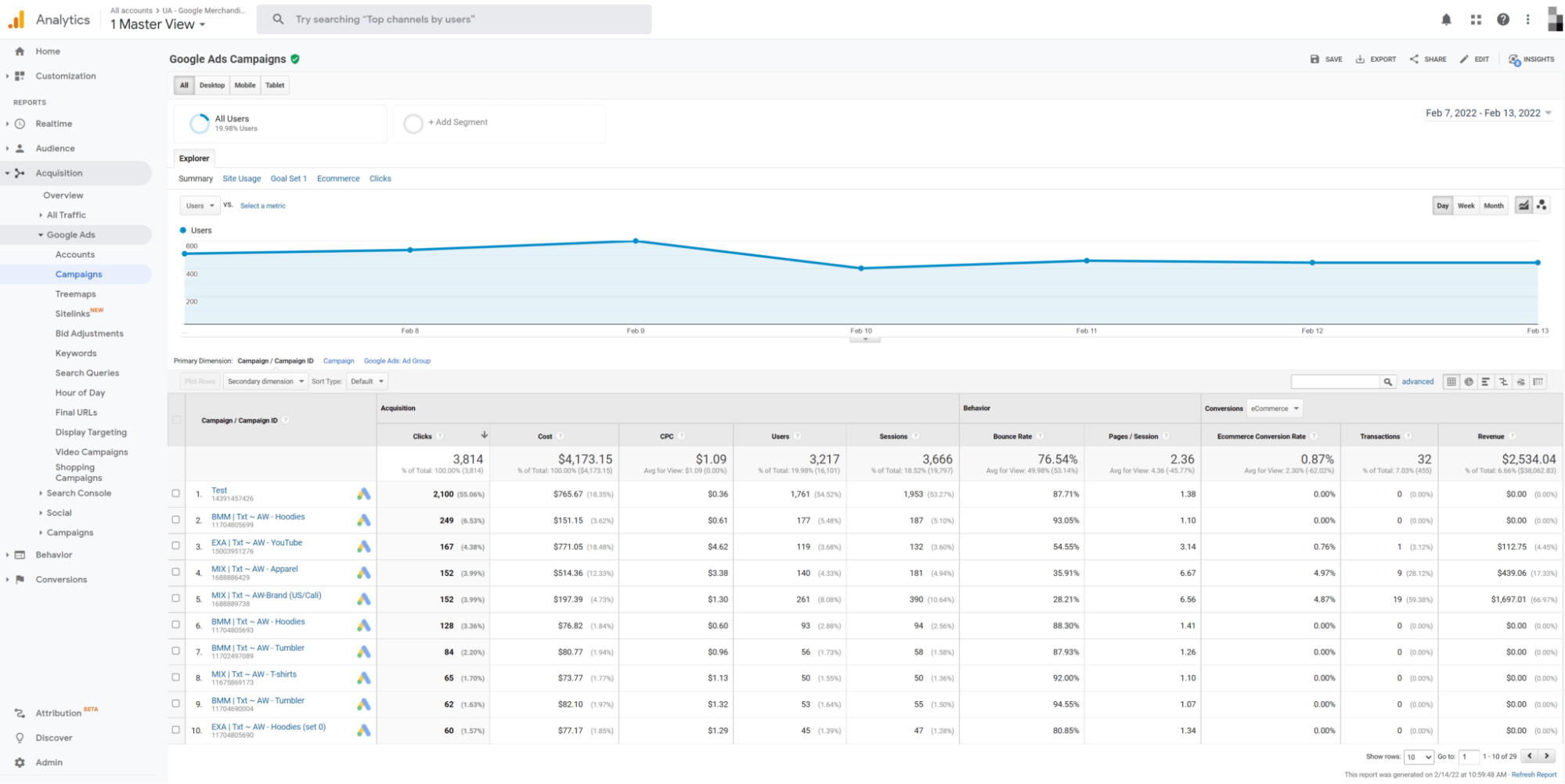
As a digital marketer, it’s your job to know whether your PPC campaigns are on the right track. Luckily, that’s why marketers turn to Google Analytics. Integrating Google Analytics with the platforms Google Ads provides can give you deeper insights.
Although Google already offers PPC management tools, connecting them to Google Analytics will take them to the next level. This additional platform allows you to view real-time performance metrics, including:
- Number of clicks.
- Cost per click (CPC).
- Number of sessions.
- Bounce rate.
- Conversion rate.
These insights empower you to analyze your PPC strategy and make data-driven decisions about how to allocate your ad account budget. Over time, you can use these metrics to improve performance and refine your campaigns.
Pricing: Free version available (Higher tiers are priced).
3. Semrush
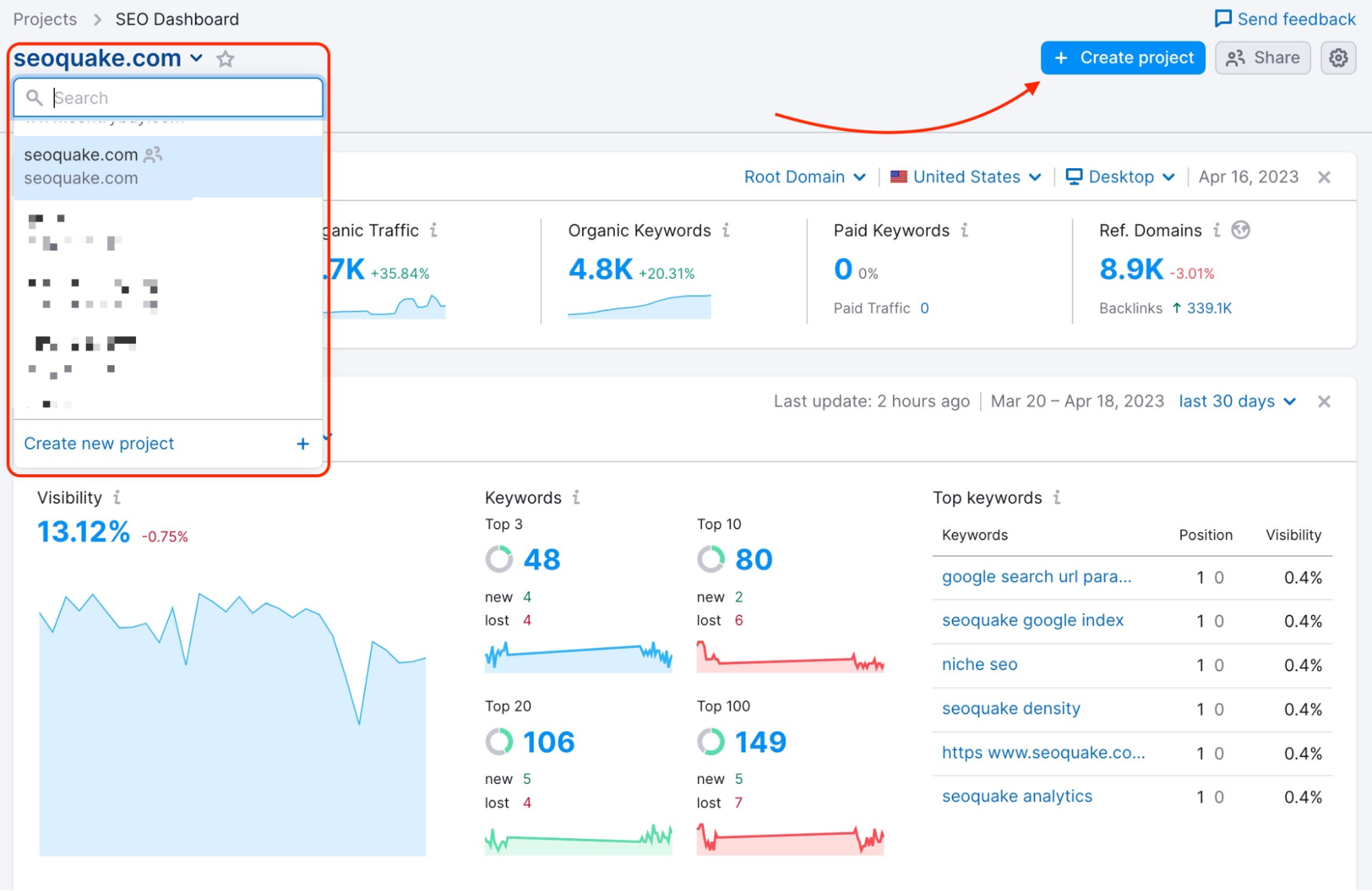
Semrush is one of the most popular (and powerful) PPC tools and software providers on the market. As an all-in-one digital marketing tool, Semrush is a great asset in many aspects of PPC advertising, including search engine optimization (SEO).
More specifically, Semrush greatly simplifies keyword research by giving you detailed search volume competition data. The platform offers various capabilities that leverage a massive keyword database, allowing you to identify search terms most relevant to your goals.
Likewise, you can analyze thousands of keywords at a time and pinpoint the ones your competitors are using. It even provides insight into which keywords your competitors are bidding on. This level of detail can save time on your PPC campaign tasks by helping you focus on the phrases that matter.
Pricing: Starts at $139.95 per month.
4. PPC Entourage
PPC Entourage is a well-known tool that boasts a wide range of innovative features made specifically for Amazon ads. As a user-friendly platform, this solution is great for any digital marketer just getting started with PPC advertising who wants to run multiple ad campaigns efficiently.
Users leverage a suite of automation tools, enabling them to apply a template across multiple Amazon PPC campaigns in a matter of seconds. PPC Entourage also includes a “Bulk Optimizer” tool, which allows you to optimize every ad account and all your Amazon ads in a fraction of the time it would normally take.
Customers also receive advanced and accurate PPC reports, which can be compiled on a weekly or monthly basis. This gives you the ability to make regular adjustments to your advertising campaigns and keep them on course.Pricing: PPC Entourage charges a 2.9% monthly ad spend fee.
5. AdEspresso
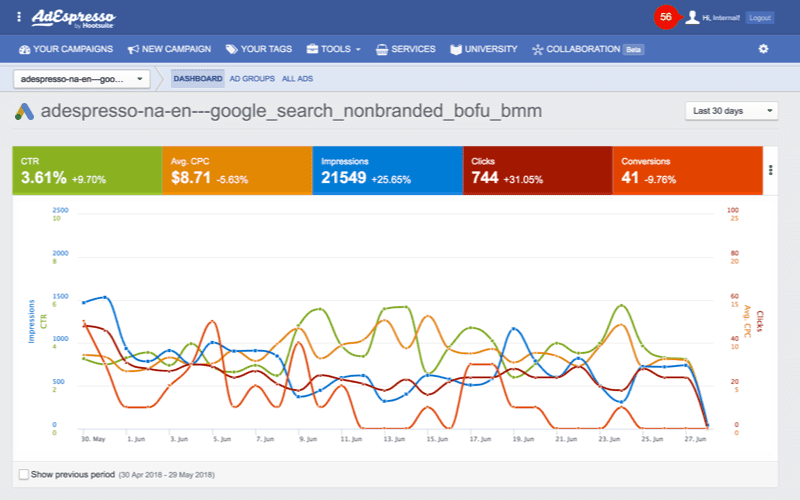
AdEspresso is primarily a Google Ads alternative that augments the platform’s built-in capabilities. Although not one of the more robust PPC software solutions available, its unique split testing feature stands out from the crowd.
This optimization tool simplifies A/B testing, allowing you to try different Google ad variations to see what sticks. In turn, you can identify the most effective messaging and tweak the ad copy accordingly. AdEspresso also integrates with Facebook Ads and Instagram, helping you manage ad campaigns across all these channels simultaneously.
Pricing: Starts at $49 per month.
6. SpyFu
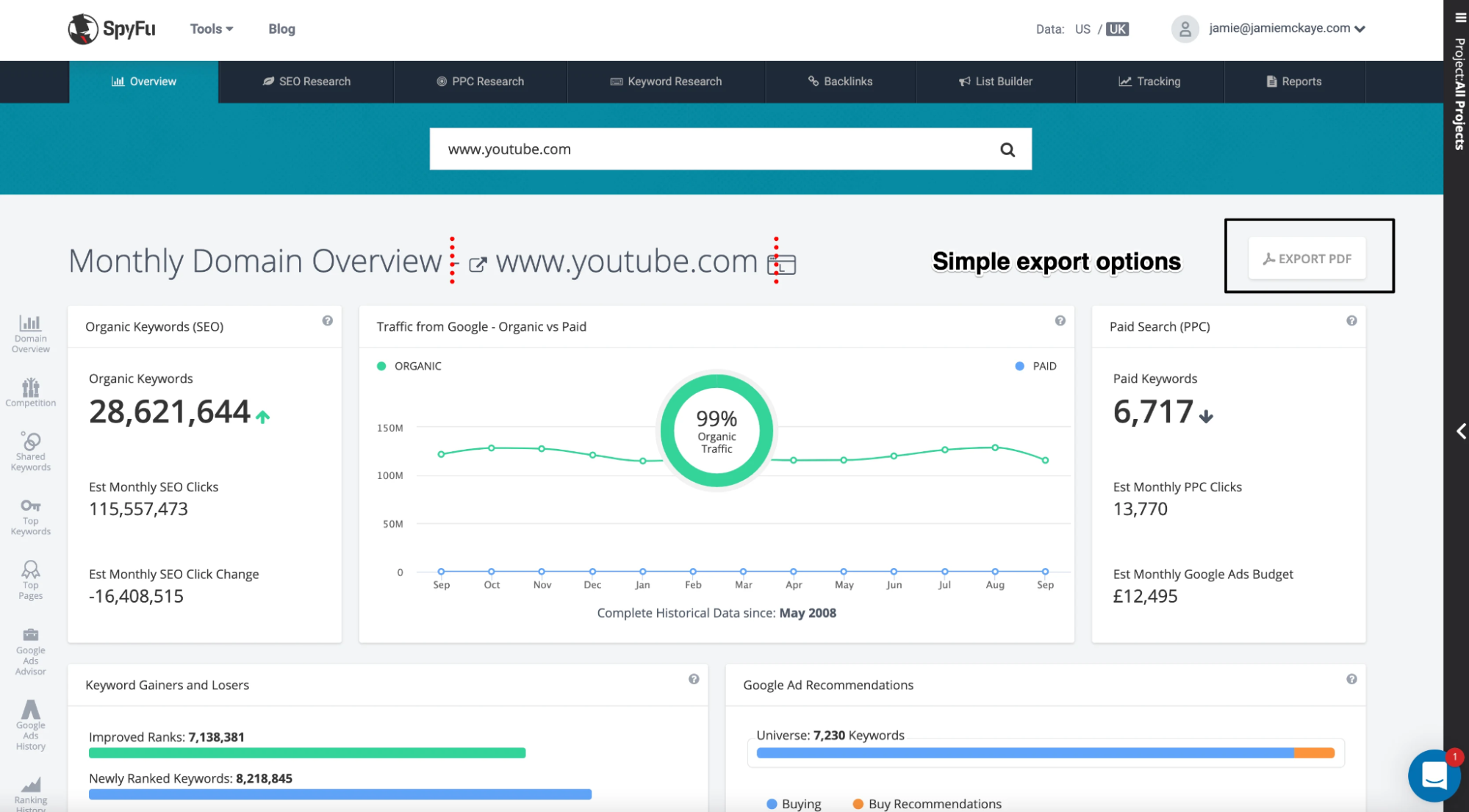
As the name implies, SpyFu helps you “spy” on the competition — well, kind of. At the very least, this PPC management software takes a peek behind the scenes and helps you understand competitor rankings and ad variations.
Not only can you see which keywords competitors are bidding on, but you can also view every keyword and PPC ad they’ve ever used. Plus, SpyFu takes the guesswork out of SEO by doubling as a SERP analysis tool. In other words, you can use its insights to understand Google trends and stay ahead of the search engine curve.
Pricing: Basic plans start at $39 per month.
7. Trellis
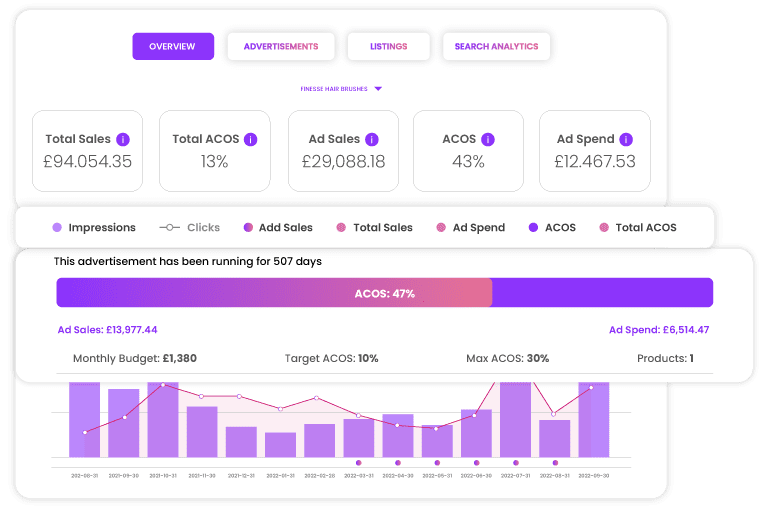
Trellis is another Amazon PPC tool designed to help marketers manage E-commerce advertising. Although it’s an advanced platform with a swarm of innovative features, its user-friendly dashboard makes it easy to optimize multiple Amazon PPC campaigns in one fell swoop.
One great feature of Trellis’ AI-powered automation tools is their ability to allocate budgets between branded and generic keywords. This helps you make the most of your Amazon advertising budget, ensuring maximum sales growth and allowing you to monitor your Google Ads campaigns alongside your Amazon efforts if needed.
Pricing: Plans start at $299 for revenue up to $2 million annually.
8. WordStream
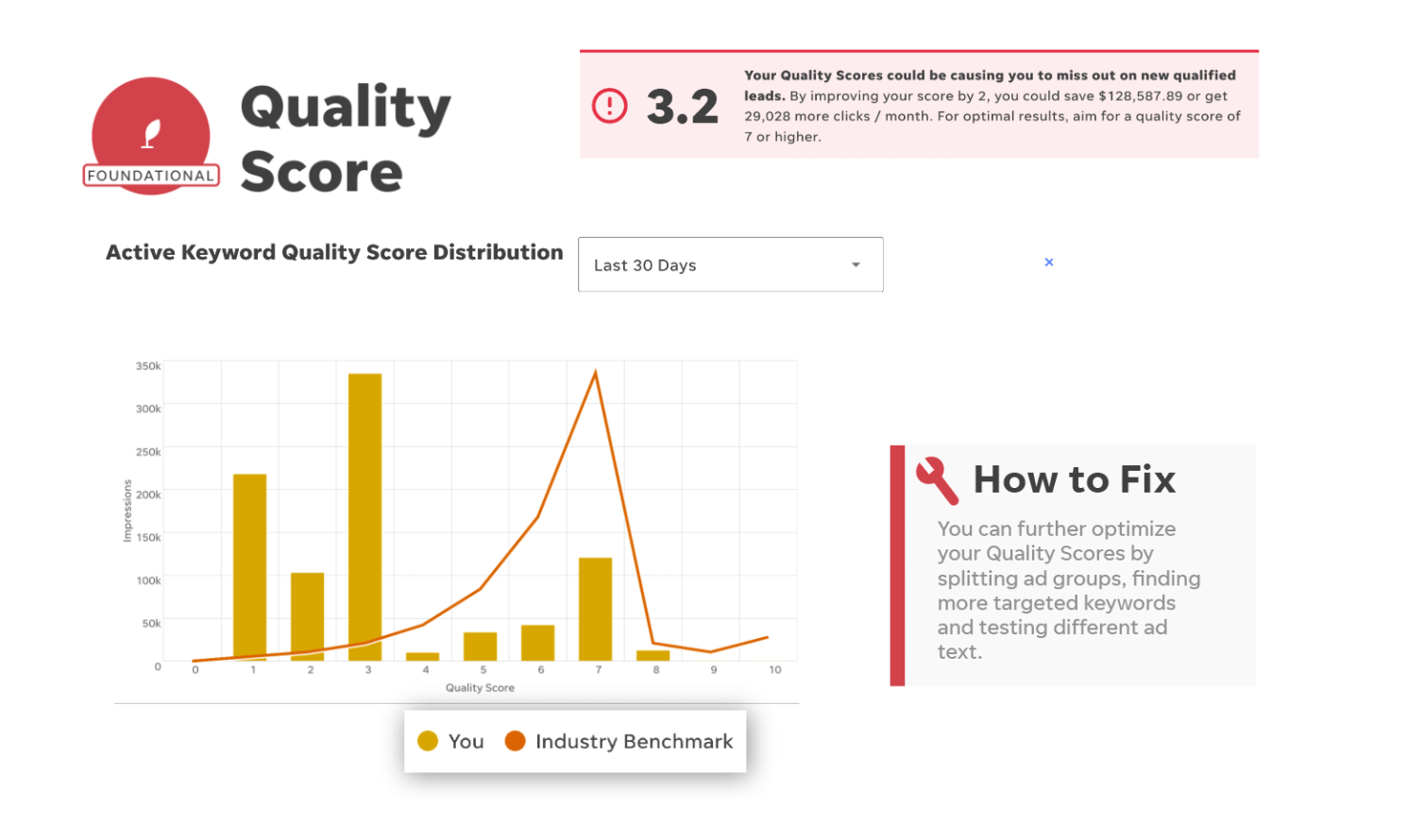
WordStream began with a singular focus on keyword research, but has since developed into a suite of PPC software solutions. However, we’d like to call out two of its capabilities in particular:
- Google Ads Performance Grader.
- Facebook Ads Performance Grader.
These two benchmarking tools are great for understanding the quality of your campaign and identifying missed opportunities. They assess your campaigns and assign an overall score between zero and 100 — the higher the score, the better the campaign.
WordStream also provides individual scores in 10 categories, including wasted spend, click-through rate and landing page optimization. By getting a clear snapshot of your Google Ads account, you can pinpoint weak areas and boost your PPC optimization.
Pricing: Free tools and resources available.
9. Optymyzr
Optymyzr calls itself a single platform to “audit, optimize, automate and report on paid media campaigns that grow your business.” As a comprehensive PPC software provider, Optymyzr focuses not only on Google Ads, but also Facebook Ads, Microsoft Ads and Amazon advertising.
This product supports a variety of PPC ads formats, including search, shopping, display and video. Some of its key features are:
- Automated bid management.
- Auction insights.
- Paid search optimization.
- PPC reporting.
- Budget tracking.
By centralizing these tasks, Optymyzr helps you coordinate all your platforms, including Google Ads, so you can manage every ad account in one place.
Pricing: $209 per month.
9. Optymyzr
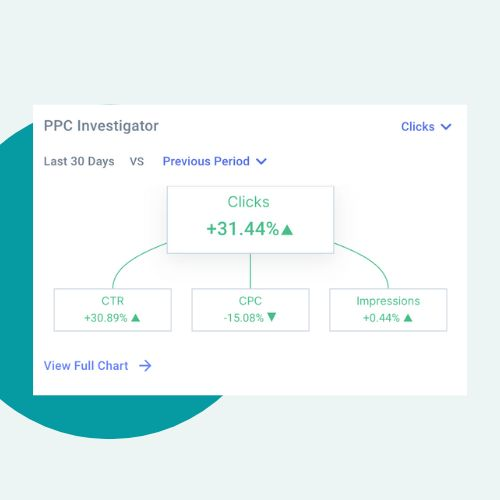
Optymyzr calls itself a single platform to “audit, optimize, automate and report on paid media campaigns that grow your business.” As a comprehensive PPC software provider, Optymyzr focuses not only on Google Ads, but also Facebook Ads, Microsoft Ads and Amazon advertising.
This product supports a variety of PPC ads formats, including search, shopping, display and video. Some of its key features are:
- Automated bid management.
- Auction insights.
- Paid search optimization.
- PPC reporting.
- Budget tracking.
By centralizing these tasks, Optymyzr helps you coordinate all your platforms, including Google Ads, so you can manage every ad account in one place.
Pricing: $209 per month.
10. Adzooma
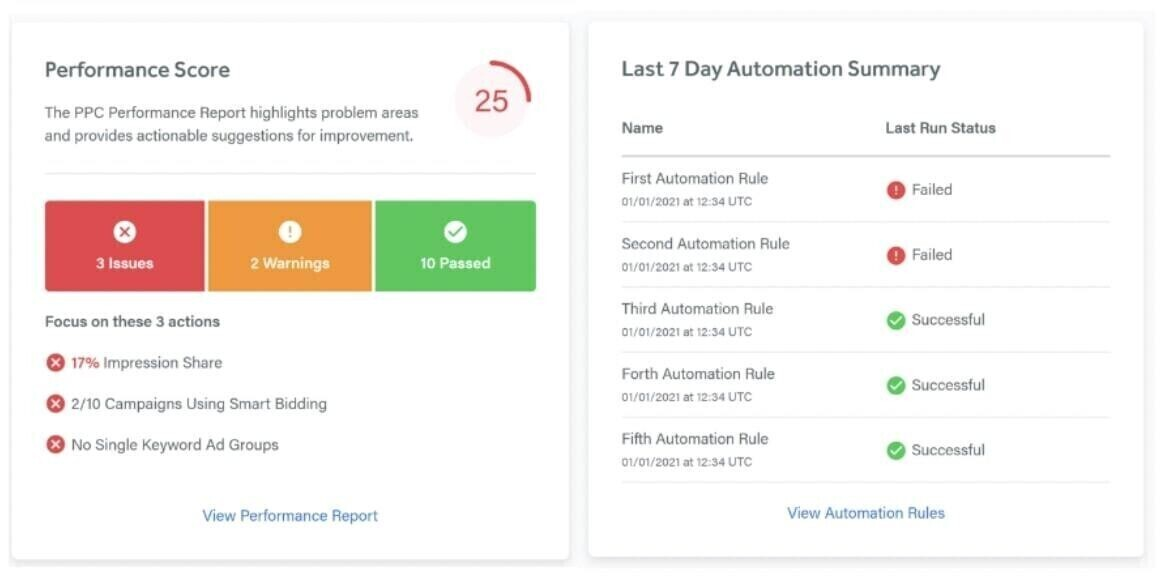
10. Adzooma
The Adzooma PPC management system helps you create, manage, analyze and enhance your PPC ad campaigns through automation tools and growth opportunities. To date, this holistic platform has optimized over $1 billion in ad spend, generated over 2.11 billion clicks and achieved nearly 200 million conversions.
Adzooma provides weekly smart recommendations, which you can use to improve ad performance over time. Users can set rules to automate certain tasks like bidding, budget allocation and more. Plus, with Google Analytics integration, you can gain even more granular insights into user behavior on your website.
If you’re looking for a solution with both free and paid plans, Adzooma has a flexible approach that scales as you grow.
Pricing: Adzooma offers a free plan, but premium paid plans begin at $69 per month.
What PPC Tools Won’t Be Able To Do for You
Ultimately, PPC management isn’t easy if you’re not using software solutions. That said, even the most advanced PPC tools can’t do everything on your behalf.
No matter what technologies you have at your disposal, there’s no replacing human insight and creativity. AI-powered tools may be helpful, but they’re far from perfect.
Bottom line: Think twice before you set and forget your PPC strategy. With the right balance of automation and manual oversight, you’ll be well on your way to success.
Editor’s note: Updated June 2025





